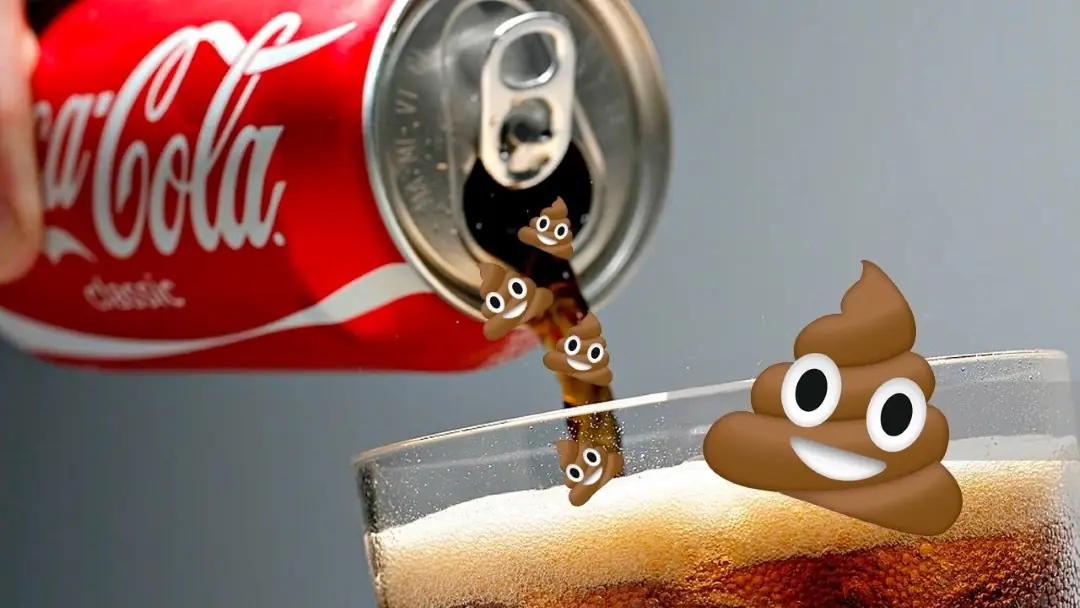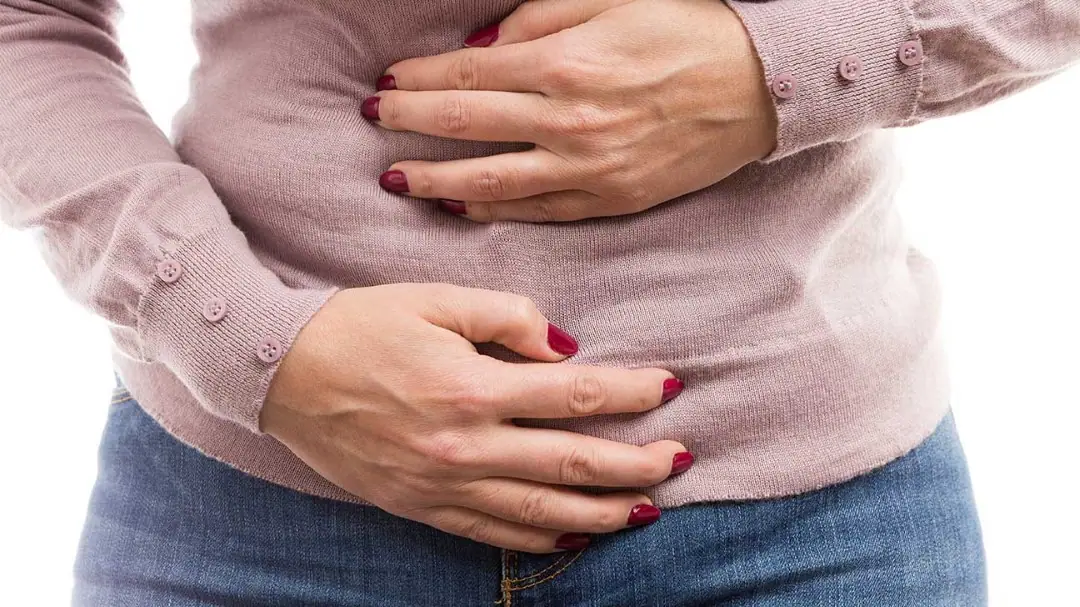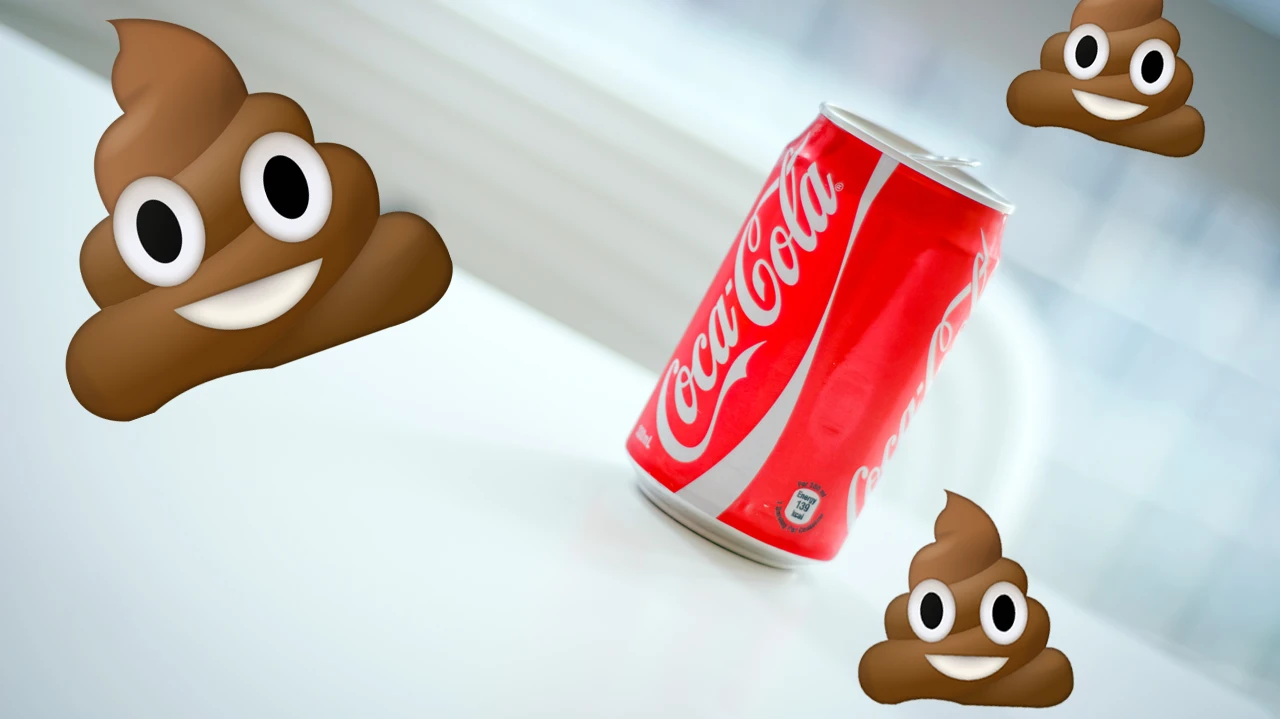If you’ve ever noticed that drinking a can of Coca-Cola sends you running to the restroom, you’re not alone. Many people wonder why Coke, or other carbonated beverages, can have such a potent laxative effect. In this article, we’ll explore the science behind why Coke makes you poop and address some frequently asked questions about this intriguing phenomenon.
Carbonation and Bowel Movements
Carbonated drinks like Coca-Cola contain dissolved carbon dioxide gas, which gives them their characteristic fizz. When you consume these beverages, the carbon dioxide is released in your stomach, creating bubbles. This process is what causes the familiar burning sensation, but it can also impact your gastrointestinal tract.
The Role of Gas Pressure
The release of carbon dioxide in your stomach results in increased gas pressure. This pressure can have several effects on your digestive system:
- Stomach Distension: The gas pressure from the carbonation can cause your stomach to distend, or expand. This distension can put pressure on the surrounding organs, including your intestines.
- Relaxation of the Sphincters: Your digestive system has several muscular rings known as sphincters that control the flow of material through your gastrointestinal tract. Increased gas pressure can relax these sphincters, allowing contents to move more freely.
- Stimulation of Gastrocolic Reflex: The carbonation and gas pressure can stimulate the gastrocolic reflex, which is a natural response that triggers the urge to have a bowel movement when the stomach is stretched. This reflex can be especially strong in some individuals, leading to a more urgent need to poop.

Caffeine in Coke
Coca-Cola contains caffeine, which is known to have a laxative effect on some people. Caffeine stimulates the muscles in your digestive system and can lead to increased bowel movements. This effect can be particularly noticeable when you consume caffeinated beverages like Coke.
Is it normal for Coke to make me poop? Yes, it is normal for some people to experience a laxative effect from drinking Coke. The carbonation, gas pressure, and caffeine content in the beverage can contribute to this phenomenon.
Why do some people not experience this effect? The extent to which Coke affects your bowel movements can vary from person to person. Factors like individual sensitivity to carbonation, caffeine, and the presence of other foods in your stomach can influence whether you feel the need to poop after consuming Coke.
Are other carbonated drinks equally effective as laxatives? While Coke is a well-known example, other carbonated beverages can also have a laxative effect on some individuals. It depends on the carbonation levels, caffeine content, and individual sensitivity.
Can I use Coke as a remedy for constipation? While some people find relief from constipation by consuming Coke or other carbonated drinks, it’s not a recommended or reliable remedy. It may work for some individuals, but there are more effective and healthier ways to address constipation, such as dietary changes, increased water intake, and the use of over-the-counter laxatives if necessary.

Does diet Coke have the same effect as regular Coke? Diet Coke, which is sugar-free and contains artificial sweeteners, may not have the same effect on bowel movements as regular Coke. The absence of sugar and the presence of artificial sweeteners can affect how your body responds to the beverage.
Conclusion
In conclusion, the phenomenon of Coke making you poop is a result of multiple factors, including the release of carbon dioxide gas, increased gas pressure, the stimulation of the gastrocolic reflex, and the presence of caffeine in the beverage. While it is a common experience for some, not everyone will have the same response to drinking Coke. If you find that Coke or other carbonated drinks consistently lead to urgent bowel movements, it’s essential to be mindful of your consumption, as excessive intake may not be healthy for your digestive system. As with any dietary concerns, it’s advisable to consult with a healthcare professional if you have persistent gastrointestinal issues or concerns about your diet.

